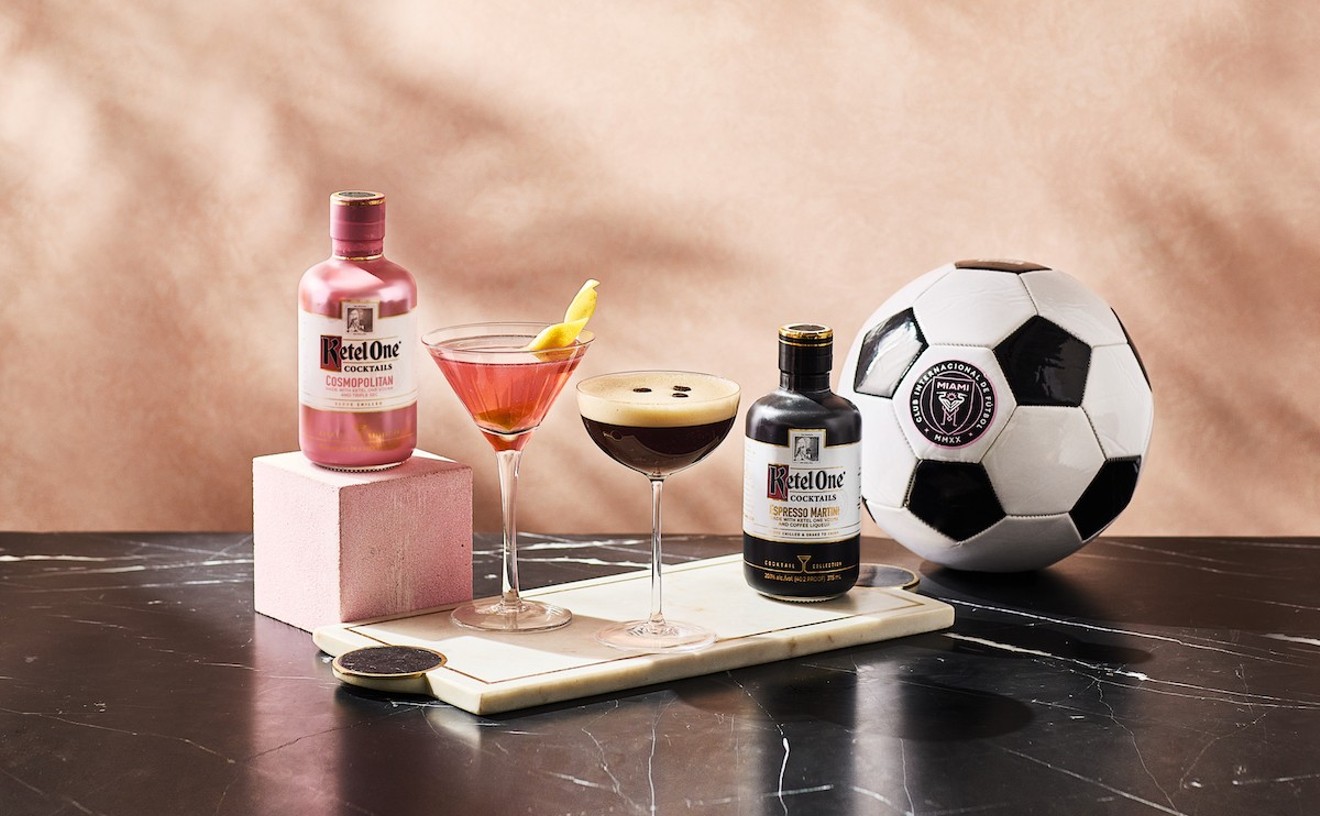First, just stay away from the individually wrapped, frozen fish fillets. Don't look at them, don't think about them, and forget they even exist.
Buying fish can often be a daunting task. With rampant concerns over genetically modified species, sustainability, and the long-term effects of farmed fish on health, it's easy to stand at a fish counter temporarily stunned by fear and simple confusion.
The first step to getting past it is to buy fish whole. When you buy the whole animal, you can look at small details.
Make sure the eyes are clear, says Wild Sea Oyster Bar & Grille's chef de cuisine Jon Sanchez. "The redder the gills, the better."
See Also:
Wild Sea Oyster Bar & Grille Sets a New Seafood Standard for Las Olas
Hot Peppers: Awesome Trinidadian Food in Pembroke Pines
Smell is also critical. For the untrained but aspirational home cook, it can be hard to distinguish between a good fishy smell and a bad one.
"Imagine you're driving up the coast and get out of your car in South Carolina," Sanchez says. "There's a clear difference between a nice, oceany, salty smell and something that's bad."
If you still can't discern between the two, there's a simple solution (disclaimer: this is not Sanchez's advice). Let a cheap piece of fish sit in the refrigerator for a few days. Take it out. Smell it. You'll never be confused again.
At the store, don't be afraid to demand to smell your fish. Make the person working the counter take it out. Be polite, and get your nose in there.
"If I go to a market to buy scallops because I want to cook a little dinner for a lady, I ask them to smell it," Sanchez says.
With shellfish, you want to buy what's still alive. For oysters, mussels, and clams, that means closed shells.
"Obviously again there's the smell," Sanchez noted, but "you don't have to be afraid of dirty oysters; they are raised in muddy little shore banks. If they're open and they don't close when you touch them, they're dead."
Also be aware of shellfish stored in freshwater. These creatures belong in the salty ocean and if placed into freshwater for storage, they'll essentially drown to death.
If you can't buy whole fish and are stuck with fillets, look closely at the flesh. Sanchez says to keep an eye out for mushy-looking flesh, which means it's been frozen. If it's got any kind of stickiness, it's old, and if it's falling apart with strips of flesh detaching from the thin layers of fat in between, it's a no-no.
"The best way to do it is to go somewhere that has the whole fish and have the guy who will cut it for you," Sanchez says. "It's just a matter of building up that trust and relationship."
Wild Sea Oyster Bar & Grille is located at 620 E. Las Olas Blvd. in Fort Lauderdale. Call 954-467-2555, or visit riversidehotel.com/dining/wild-sea-oyster-bar-and-grill.
For more follow Zach on Twitter @ZachIsWeird.
Follow @CleanPlateBPB











